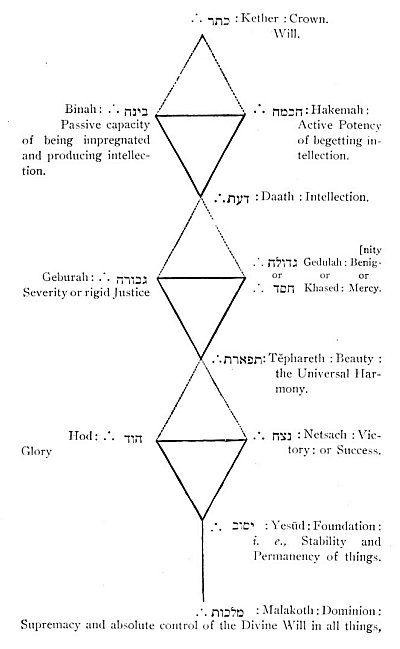p. 678
[paragraph continues] It was not yet intelligible, nor was even the road opened through which it might be approached.
Mind cannot advance in metaphysics beyond self-deification. In attempting to go further, it only enacts the apotheosis of its own subtle conceptions, and so sinks below the simpler ground already taken. The realities which Plato could not recognize in phenomena, he discovered within his own mind, and as unhesitatingly as the old Theosophists installed its creations among the gods. He, like most philosophers after Anaxagoras, made the Supreme Being to be Intelligence; but in other respects left His nature undefined, or rather indefinite through the variety of definitions, a conception vaguely floating between Theism and Pan-theism. Though deprecating the demoralizing tendencies of poetry, he was too wise to attempt to replace them by other representations of a positive kind. He justly says, that spiritual things can be made intelligible only through figures; and the forms of allegorical expression which, in a rude age, had been adopted unconsciously, were designedly chosen by the philosopher as the most appropriate vehicles for theological ideas.
As the devices of symbolism were gradually stripped away, in order, if possible, to reach the fundamental conception, the religious feeling habitually connected with it seemed to evaporate under the process. And yet the advocates of Monotheism, Xenophanes and Heraclitus, declaimed only against the making of gods in human form. They did not attempt to strip nature of its divinity, but rather to recall religious contemplation from an exploded symbolism to a purer one. They continued the veneration which, in the background of poetry, has been maintained for Sun and Stars, the Fire or Ether. Socrates prostrated himself before the rising luminary; and the eternal spheres, which seem to have shared the religious homage of Xenophanes, retained a secondary and qualified Divinity in the Schools of the Peripatetics and Stoics.
The unseen being or beings revealed only to the Intellect became the theme of philosophy; and their more ancient symbols, if not openly discredited, were passed over with evasive generality, as beings respecting whose problematical existence we must be “content with what has been reported by those ancients, who, assuming to be their descendants, must therefore be supposed to have been well acquainted with their own ancestors and family
p. 679
connections.” And the Theism of Anaxagoras was still more decidedly subversive, not only of Mythology, but of the whole religion of outward nature; it being an appeal from the world without, to the consciousness of spiritual dignity within man.
In the doctrines of Aristotle, the world moves on uninterruptedly, always changing, yet ever the same, like Time, the Eternal Now, knowing neither repose nor death. There is a principle which makes good the failure of identity, by multiplying resemblances; the destruction of the individual by an eternal renewal of the form in which matter is manifested. This regular eternal movement implies an Eternal Mover; not an inert Eternity, such as the Platonic Eidos, but one always acting, His essence being to act, for otherwise he might never have acted, and the existence of the world would be an accident; for what should have, in that case, decided Him to act, after long inactivity? Nor can He be partly in act and partly potential, that is, quiescent and undetermined to act or not to act, for even in that case motion would not be eternal, but contingent and precarious. He is therefore wholly in act, a pure, untiring activity, and for the sane reasons wholly immaterial. Thus Aristotle avoided the idea that God was inactive and self-contemplative for an eternity, and then for some unknown reason, or by some unknown motive, commenced to act outwardly and produce; but he incurred the opposite hazard, of making the result of His action, matter and the Universe, be co-existent with Himself; or, in other words, of denying that there was any time when His outward action commenced.
The First Cause, he said, unmoved, moves all. Act was first, and the Universe has existed forever; one persistent cause directing its continuity. The unity of the First Mover follows from His immateriality. If He were not Himself unmoved, the series of motions and causes of motion would be infinite. Unmoved, therefore, and unchangeable Himself, all movement, even that in space, is caused by Him: He is necessary: He cannot be otherwise than as He is; and it is only through the necessity of His being that we can account for those necessary eternal relations which make a science of Being possible. Thus Aristotle leaned to a seemingly personal God; not a Being of parts and passions, like the God of the Hebrews, or that of the mass even of educated men in our own day, but a Substantial Head of all the categories of being, an Individuality of Intelligence, the dogma of Anaxagoras revived

Moe is the founder of GnosticWarrior.com. He is a father, husband, author, martial arts black belt, and an expert in Gnosticism, the occult, and esotericism.





